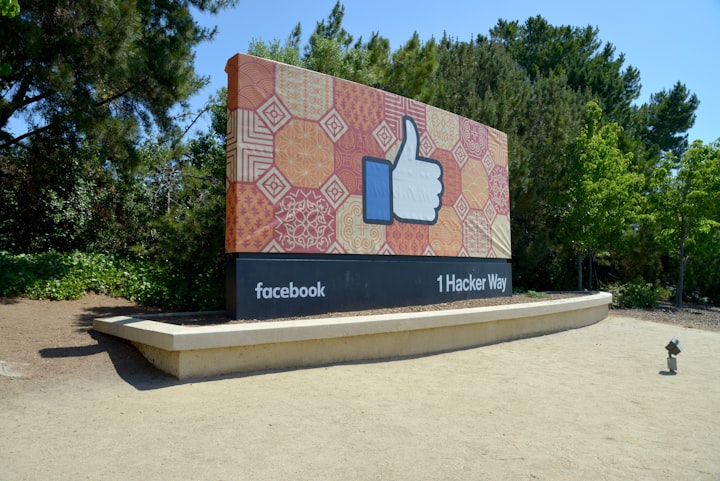
Facebook is one of the most influential and widely used social media platforms in the world. Founded in 2004 by Mark Zuckerberg, the platform has grown from a simple social networking site for college students into a global phenomenon with over 2.8 billion monthly active users as of 2021.
The story of Facebook begins in 2003, when Zuckerberg was a sophomore at Harvard University. While studying computer science, he developed a program called "Facemash," which allowed users to compare two pictures of female students and vote on who was more attractive. The program was quickly shut down by the university, but it marked the beginning of Zuckerberg's interest in creating social networking software.
In February 2004, Zuckerberg launched "Thefacebook.com" as a social networking site exclusively for Harvard students. The site quickly gained popularity, and within a month, it had expanded to include other Ivy League schools. By the end of the year, it had been opened up to all college and university students in the United States.
In 2005, Facebook received its first major investment from venture capitalist Peter Thiel, who invested $500,000 in the company. The following year, Facebook launched its News Feed feature, which allowed users to see updates and posts from their friends in real-time. The feature was initially met with backlash from users who felt it violated their privacy, but it quickly became one of Facebook's most popular and enduring features.
In 2007, Facebook launched its first advertising platform, which allowed companies to create targeted ads based on user demographics and interests. The platform was an immediate success, and by 2012, Facebook had become the second-largest online advertising platform in the world, behind only Google.
In 2008, Facebook opened its platform to third-party developers, allowing them to create applications and games that could be integrated with the site. This move helped to solidify Facebook's position as the dominant social media platform of the time.
In 2012, Facebook went public, raising $16 billion in one of the largest initial public offerings in history. However, the company's stock price plummeted in the months following the IPO, leading to accusations of mismanagement and overvaluation.
In the years since its IPO, Facebook has continued to grow and evolve. In 2013, the company launched Facebook Home, a mobile app that transformed Android devices into Facebook-centric phones. The app was met with mixed reviews and was eventually discontinued.
In 2014, Facebook made headlines when it acquired WhatsApp, a popular messaging app, for $19 billion. The acquisition was one of the largest in tech history and solidified Facebook's position as a dominant force in the mobile messaging space.
In recent years, Facebook has faced increased scrutiny over its handling of user data and privacy. In 2018, the company was embroiled in a scandal over the unauthorized sharing of user data with Cambridge Analytica, a political consulting firm. The scandal led to calls for increased regulation of the tech industry and a renewed focus on privacy and data protection.
Despite these challenges, Facebook remains one of the most influential and widely used social media platforms in the world. As of 2021, the platform has over 2.8 billion monthly active users and continues to grow and evolve. With its massive user base and vast reach, Facebook is likely to remain a major player in the tech industry for years to come.
After weathering the storm of the Cambridge Analytica scandal, Facebook continued to face criticism and scrutiny from lawmakers and the public. In response, the company implemented a number of changes to its data and privacy policies, including increased transparency and accountability.
In 2019, Facebook announced its plans to launch a new cryptocurrency called Libra. The announcement was met with both excitement and skepticism, with many experts expressing concern about the potential risks and challenges associated with a global digital currency. Ultimately, the project faced significant regulatory hurdles and was eventually shelved in 2020.
In the wake of the COVID-19 pandemic, Facebook played an increasingly important role in connecting people and communities around the world. The platform saw a surge in usage as people turned to social media to stay connected while in lockdown. However, the pandemic also highlighted the challenges and limitations of social media as a tool for combating misinformation and promoting public health.
As Facebook continues to evolve and grow, it remains one of the most influential and controversial companies in the tech industry. Its massive reach and influence have sparked debates and discussions about everything from privacy and data protection to the role of social media in politics and society.
Despite its many challenges and controversies, Facebook shows no signs of slowing down. With its massive user base and vast array of features and services, the platform remains an essential part of the modern digital landscape. As the tech industry continues to evolve and innovate, Facebook is sure to remain a key player in shaping the future of social media and online communication.
About the Creator
Investor
finance-educate.com





Comments
There are no comments for this story
Be the first to respond and start the conversation.